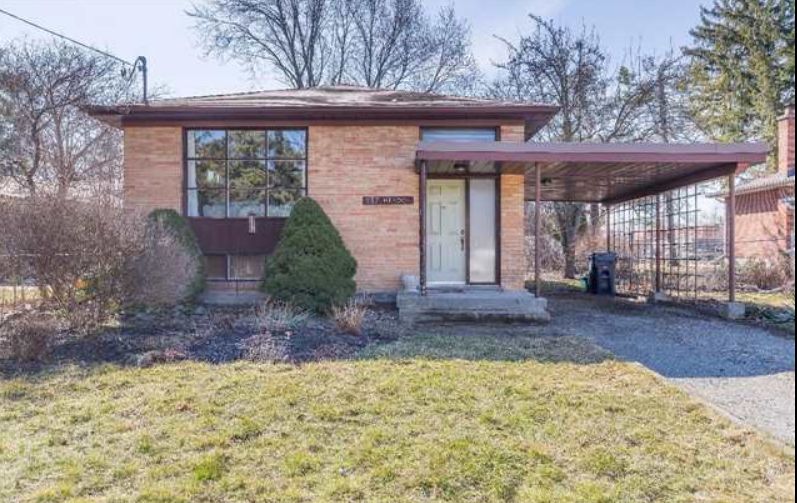Post Title:
Real estate prices are declining in Toronto, is a market crash in the wind
Max Seal’s Comments:
The title of this post says it all.
In March, 2018, the media reporters are competing for catchy “going-down-the-hole” negative headlines to describe crashing of Toronto housing prices. Just 1 year ago back in March, 2017, the same media reporters were suggesting that thousands of buyers may not be able to buy a house in their lifetime unless they entered the housing market in the Toronto area right away when house prices were galloping.
Some people outside the larger Greater Toronto Areas might think, “Are these Toronto area homes still standing?”
Suddenly, the real estate market economists, forecasters and market experts failed collectively to anticipate the on-going price corrections in the Toronto real estate market.
OK, now that the Toronto real estate market prices are going downwards, how many months will it continue?
- Toronto real estate market prices:: I looked at the increase of house prices in four (4) different Central Toronto areas that I serve my sellers and buyers clients:
(1) In Yonge St and Lawrence Av W area: Detached, 2-Storey, 40 ft frontage, newer houses on Dunblaine Ave sold around $1.35 million in March, 2012, and similar house sold around $2.52 million in March, 2017 — an increase in price close to 100% in 5 years.
(2) In Yonge St and Roxborough St W (Yorkville) area: Detached, 3-Storey, 30 ft frontage, older houses on Roxborough St W sold around $1.72 million in June, 2012, and similar house sold around $3.54 million in June, 2017 — an increase in price over 100% in 5 years.
(3) In Victoria Park Ave and Finch Ave E area: High-demand Semi-Detached, 5-Level Backsplit houses sold around $591 K in April, 2012, and similar house sold around $1.136 million in April, 2017 — an increase in price close to 100% in 5 years.
(4) In Pharmacy Ave and Lawrence Ave E area: Popular small bungalow houses sold around $485 K in March, 2012, and similar house sold around $1.102 million in March, 2017 — an increase in price over 100% in 5 years.
2. The Canadian Government kept the key bank rate low and followed a low interest policy over ten (10) years to help the economy to grow and to create more jobs every year.
3. Consequently, very low mortgage rates and legally higher GDS ratio (39%) allowed the house buyers to obtain much higher mortgages from the banks and other lenders. With lower volume of listings available for sale, the plentiful of mortgages generated higher prices and multiple offers became common. The Toronto area house prices jumped around 100% or more in five (5) years (2012 to 2017)
4. In year 2012, The Toronto Stock Composite Index had a P/E ratio of 18.5 and In November, 2016, the Toronto Stock Composite Index had a P/E ratio of 59 — clear signs of asset bubble in the low interest environment.
5. In March, 2018, the bank rate is 1.5%. The Governor of the Bank of Canada is indicating for a few months that he wants to increase the key bank rate higher slowly. Eventually the bank rate will increase to a normal 2.5% interest rate or around there. Also, the U.S. Reserve Bank plans to increase their key bank rates.
6. At present, 1 CAN dollar = 0.76 US dollar. The Canadian dollar will decrease further if the US Reserve Bank increases their key bank rate and the US economy continue to prosper. The Governor of the Bank of Canada will increase the Canadian bank rate to support the Canadian dollar if it goes below 0.70 US. So, the mortgage rates will go up accordingly.
7. OFSI implemented new mortgage rules including “Stress Test”: In 2018, all buyers (both hi-ratio and low-ratio) need to qualify for their mortgages at 5 yr posted mortgage rates (OFSI regulation) to obtain mortgages from the government-insured banks. The mortgage brokers are saying that this regulation effectively decreases the allowable mortgage by 30% for the same income level of buyer.
8. The Ontario Government implemented “Foreign Buyer Tax” to discourage speculation on higher house prices from April, 2017. This regulation stabilized the house prices and slowed down speculation on Toronto houses prices by both foreign buyers and Canadian buyers.
9. The increase of CPI (Consumer Price Index) between yer 2012 and yer 2018 is about 10% higher — and that 10% increase of CPI in more than 5 years.
10. From April, 2017, the prices of single family homes have declined more and continue to decline than the Condo Apartments. The Condo Apartment prices were still rising in December, 2017. In Toronto Downtown, In February, 2018, the prices are close to $1,000 per 1 sq. ft living area for 1 br Condo Apartment.
10. So, will the Toronto area house prices go upwards, stay same or go down gradually during next next several months or next 1 to 3 years. Well, you can guess from the above facts.
Thinking to sell your house or Condo in Central Toronto areas and/or in downtown Toronto areas? Please call, text or email Max Seal, Broker at 647-294-1177. Please visit http://www.TorontoHomesMax.com for a FREE Home Evaluation“.
Thinking to buy a House or Condo in Central Toronto areas and/or in Downtown Toronto areas? please call or text Max Seal, Broker at 647-294-1177 to buy your dream home or Condo. I offer you a 30-min “FREE buyer’s consultation” with NO obligation.
Please visit my website http://www.centraltorontorealestate.com/ to find out available homes and Condos for sale in Central Toronto areas and/or in downtown Toronto areas.
This Toronto housing market may be a better time for “Move-up”, “Move-down” or “Empty-nester” Sellers and Buyers. Want a “Market Update” of your home in 2018? Please click the image below or call or text Max Seal, Broker at 647-294-1177 or send an email.


Leave a Reply